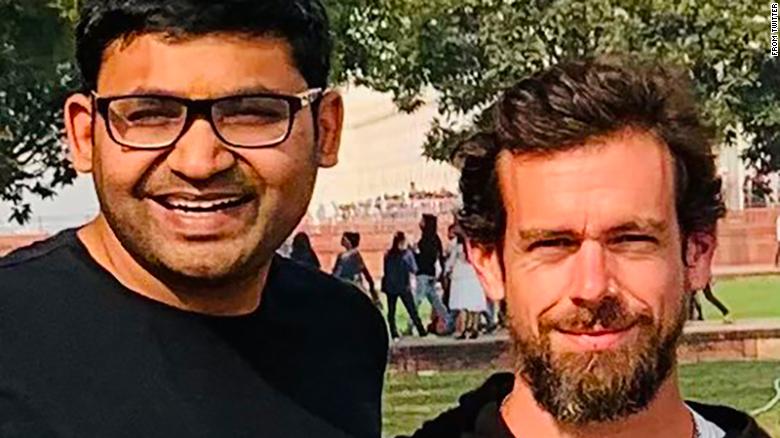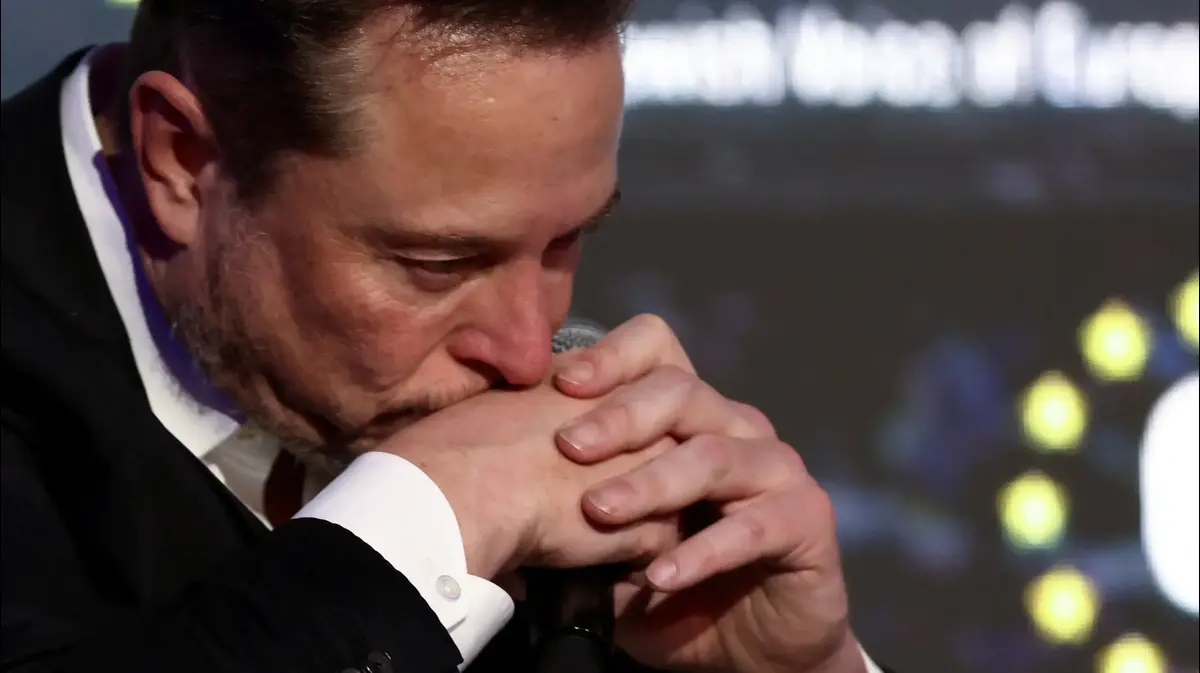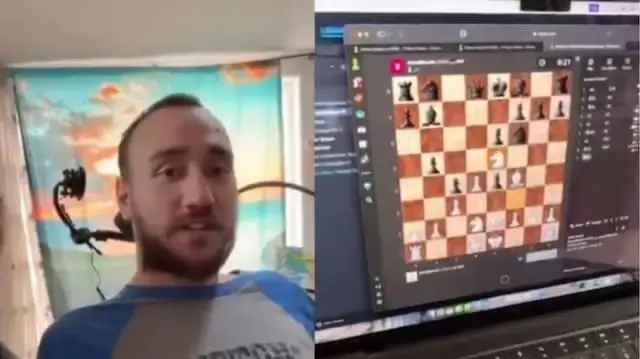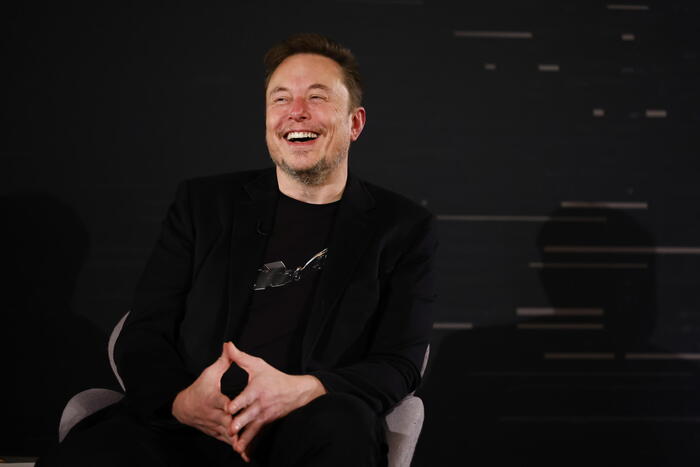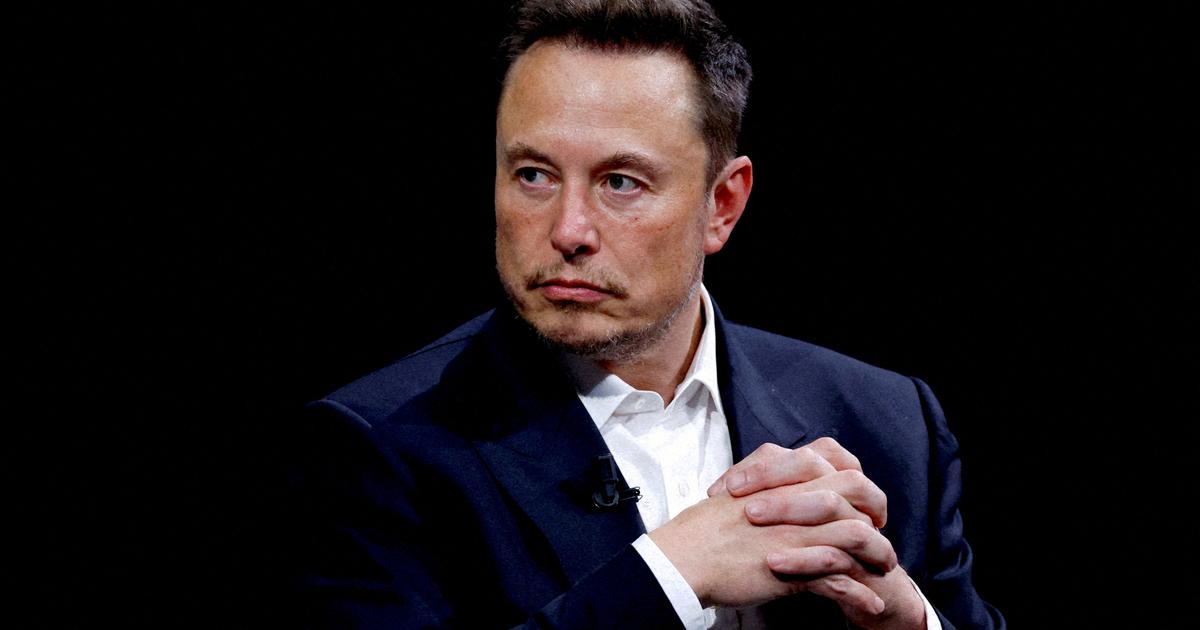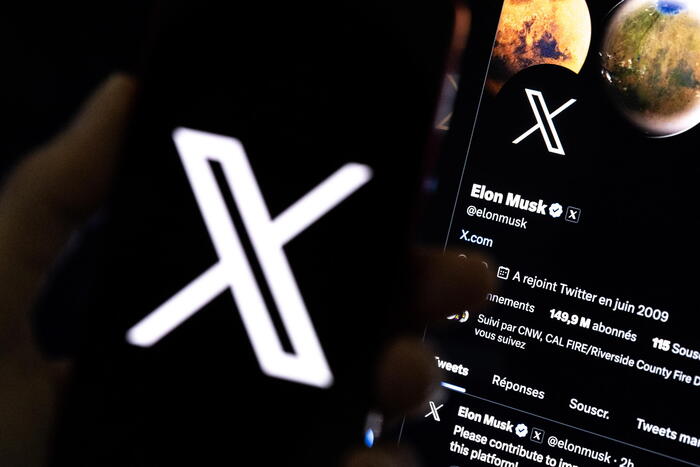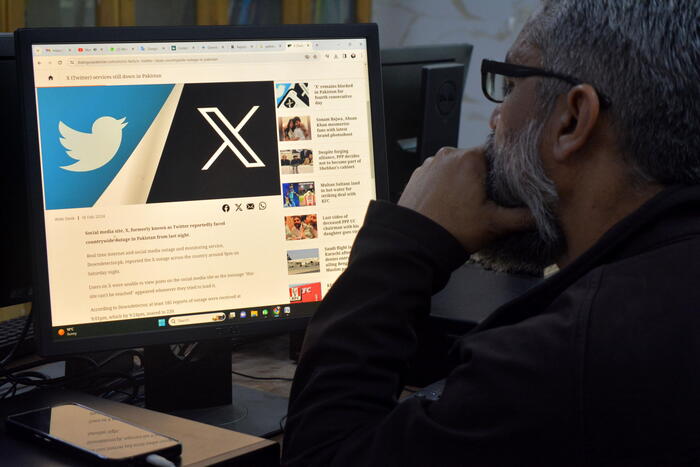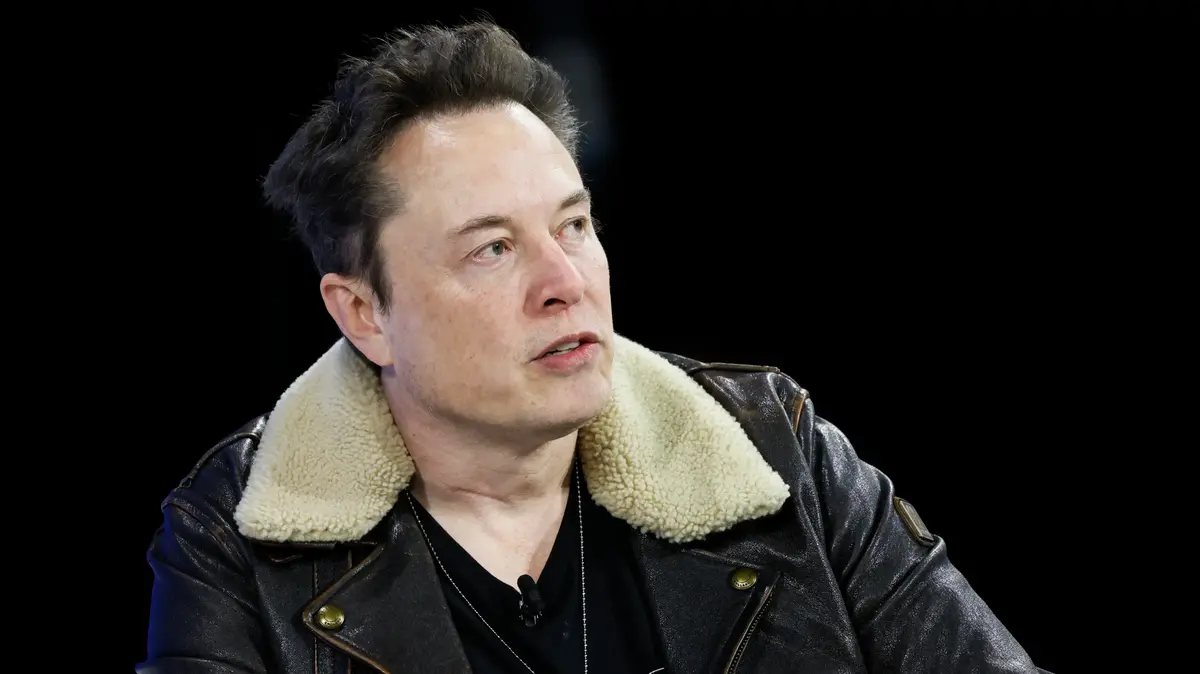Why was the Twitter purchase deal paused?
What Elon Musk Says 0:52
(CNN Business) --
A board seat accepted and then rejected.
An impressive $44 billion takeover offer with uncertain financing.
And a surprise tweet early this morning putting the deal on hold, temporarily.
Even by the standards of Twitter, a company that has known much chaos and malfunction in its history, billionaire Elon Musk's weeks-long effort to buy the company proved to be exceptionally tumultuous, with no clear end in sight.
Should the deal go through, the world's richest man would take over one of the most influential social media platforms on the planet.
The acquisition has the potential to turn not only Twitter, but also politics, the media and the tech industry, upside down.
The CEO of Tesla and SpaceX has repeatedly stressed that his goal is to reinforce what he calls "freedom of expression" on the platform, that is, all legal expression that complies with local laws in the markets in which Twitter operates.
He has also said that he will reverse Twitter's ban on former President Donald Trump.
But the attempt by Musk, a highly successful businessman with a history of erratic behavior, to buy Twitter has been met with some skepticism from the start.
The day he made the offer for him, Musk said, "I'm not sure I can get it."
Some questioned how he was going to fund the deal, especially as shares in Tesla, which he is using partially to back his funding of the Twitter deal, and the tech sector in general fell in the weeks since.
After Musk recently said he was temporarily putting the deal on hold so he could assess the amount of spam and fake accounts, there was speculation that the billionaire may be looking to renegotiate the deal, or back out entirely.
His actions in the following days only reinforced that idea.
advertising
What Bill Gates thinks about Elon Musk and Twitter 1:22
Here's a look at the many twists and turns of one of the most high-profile tech deals of recent times.
January 31: Musk begins to increase his engagement on Twitter
Musk begins quietly buying shares of Twitter, increasing his stake in the company.
But it would be months before he revealed this fact to the public.
March 14 - Musk's share of Twitter exceeds 5%.
Musk's share of Twitter exceeds 5%, but this fact is not made public until the following month.
Musk was required to disclose his stake within 10 days of passing the 5% threshold, but he waited 21 days to do so.
During that time, he continued to increase his involvement.
March 24: Wondering if Twitter should change
The billionaire starts making scathing statements about the platform from his account.
"Twitter's algorithm should be open source," she wrote, with a poll for users to vote "yes" or "no."
The next day, Musk tweets another poll to his followers: "Freedom of expression is essential for democracy to work. Do you think Twitter rigorously adheres to this principle?"
A sign outside Twitter headquarters on April 27, 2022 in San Francisco, California.
March 26: Musk contacts Jack Dorsey
Musk contacts Twitter co-founder and former CEO Jack Dorsey to "discuss the future direction of social media," according to a company presentation that was later released.
The two tech founders are known for having a little multi-million dollar "bromance" on and off Twitter.
April 3: Twitter board meets to discuss Musk
Twitter's board of directors and some of its management team are meeting with representatives from law firm Wilson Sonsini and JP Morgan to discuss the possibility of Musk joining the company's board of directors, according to a subsequent securities presentation.
Dorsey is said to have told the board that "he and Mr. Musk were friends," according to the filing.
At the meeting, Twitter's board of directors spoke of wanting Musk to accept "'staying' provisions," according to the filing.
This would effectively "limit his public statements regarding Twitter, including making unsolicited public proposals to acquire Twitter (but not private proposals) without the prior consent of the board of directors."
April 4: Surprise!
Musk becomes Twitter's largest shareholder
Musk is revealed as Twitter's largest individual shareholder, with a stake of more than 9% in the company.
News of the purchase sends shares of the social media company soaring more than 20% in early trading and kicks off a wave of speculation about how Musk could drive changes to the platform.
April 5: Musk agrees to join the board of directors
Twitter CEO Parag Agrawal announces that Musk will join the company's board of directors.
"Through conversations with Elon over the past few weeks, it was clear to us that he would bring great value to our Council," Agrawal said in a post on Twitter.
As part of the appointment, Musk agrees not to acquire more than 14.9% of the company's shares while he remains on the board.
His term on the board will run until 2024, according to a regulatory filing.
Twitter CEO Parag Agrawal (left) and former CEO Jack Dorsey in an undated photo.
April 10: Just kidding.
Musk leaves the council
Agrawal announces that Musk decided not to join the council after all.
"I think it's for the best," Agrawal writes in a letter to the Twitter team.
The change of heart opens the door for Musk to seek a bigger stake in the company, and allows him to tweet his many ideas about the company.
April 14: Musk offers to buy Twitter and "unleash" its potential
Musk surprises the industry by making an offer to acquire all the shares of Twitter he does not own at a valuation of $41.4 billion.
The all-cash offer represents a 38% premium to the company's closing price on April 1, the last day of trading before Musk revealed he had become the company's largest shareholder.
"I invested in Twitter because I believe in its potential to be the platform for freedom of expression around the world, and I believe that freedom of expression is a societal imperative for democracy to work. However, since I made my investment I realized that the company will not prosper or serve this social imperative in its current form. Twitter must be transformed into a private company," Musk writes in his offer letter.
"Twitter has extraordinary potential. I will unlock it."
April 15: the poison pill
Twitter's board of directors adopts a "poison pill" provision, a time-limited shareholder rights plan that potentially makes it more difficult for Musk to acquire the company.
Tesla CEO Elon Musk speaks during the official opening of the new electric car manufacturing plant, on March 22, 2022, near Gruenheide, Germany.
April 21: Musk secures $46.5 billion in funding
Musk secures $46.5 billion in financing for the deal, including two debt commitment letters from Morgan Stanley and other unnamed financial institutions and an equity commitment letter from himself, according to a regulatory filing.
The billionaire also reveals that he did not receive a formal response from Twitter a week after his takeover offer.
He said he is "seeking to negotiate" a definitive acquisition agreement and "is prepared to begin such negotiations immediately," an apparent change from his statement in his takeover offer letter that it would be his "last and best " offer.
Although he is the world's richest person, much of Musk's wealth is tied up in Tesla stock, and some Tesla supporters speculate that it could be a challenge for Musk to borrow from the historically volatile shares.
April 25: Twitter agrees to sell to Elon Musk
Twitter announces that it has agreed to sell itself to Musk in a deal valued at about $44 billion.
At a conference that same day, Musk describes Twitter's takeover offer of him in characteristically broad terms, saying it's about the "future of civilization," not just making money.
At an all-employee meeting that afternoon, Twitter workers are raising questions about everything from what the deal would mean for their compensation to whether former US President Donald Trump would be allowed back on the platform.
April 29: Musk dumps billions in Tesla stock
The files reveal that Musk sold $8.5 billion of his Tesla shares in the three days after Twitter's board of directors agreed to the sale for an average of $883.09 per share.
The files don't reveal the reason for the sale, but it appears that Musk is raising funds to buy Twitter.
Tesla vehicles at a dealership on March 28, 2022 in Chicago, Illinois.
May 4: With a little help from your billionaire friends
Musk secures another $7 billion in funding for the operation.
New investors include Oracle founder Larry Ellison, cryptocurrency platform Binance, and venture capital firm Sequoia Capital, according to a presentation.
May 6: Musk's ambitious goals for Twitter revealed
Musk aims to boost Twitter's annual revenue to $26.4 billion by 2028, up from $5 billion last year, according to a report in The New York Times, citing Musk's presentation to investors.
To achieve that lofty goal, Musk intends to bolster Twitter's subscription revenue and build a payments business, while lessening the company's reliance on advertising sales, according to the report.
May 10: Musk says he would reset Trump's account
Musk confirms what many have assumed for weeks: He would reverse Trump's ban on Twitter if his deal to buy the company is completed.
"I do think it was wrong to ban Donald Trump, I think it was wrong," Musk said.
"I would reverse the permanent ban ... Banning Trump from Twitter did not end Trump's voice, it will amplify it on the right and is therefore morally wrong and downright stupid."
Former President Donald Trump looks at his phone during a roundtable with governors on reopening America's small businesses, in the State Dining Room of the White House in Washington, on June 18, 2020.
May 12: partial suspension of executive hiring and departures
Twitter confirms to CNN Business that the platform is pausing most hiring and refitting, except for "business-critical" functions, and reducing other non-labor costs ahead of acquisition.
In addition, the company says chief consumer officer Kayvon Beykpour and chief revenue product Bruce Falck are leaving the company.
May 13: Twitter deal "temporarily suspended"
Musk tweets that the deal is on hold, referencing a Reuters report from nearly two weeks earlier about Twitter's latest revelation about its amount of spam and fake accounts.
The figure cited in the report, however, is in line with previous quarterly disclosures.
"The Twitter deal is temporarily on hold pending details supporting the calculation that spam/fake accounts effectively represent less than 5% of users," Musk tweeted.
Shares of the social network plunged after Musk's announcement, falling more than 10% at the market open.
Two hours after announcing the suspension, Musk says he's still hell-bent on buying Twitter.
"I remain committed to the acquisition," he wrote.
Musk later says that his team is checking Twitter's numbers and "chose 100 as the sample size number, because that's what Twitter uses to calculate <5% fake/spam/duplicates."
May 14: Oops.
Problems with the confidentiality agreement?
Musk tweeted that Twitter's legal team accused him of breaking a non-disclosure agreement when the billionaire revealed that the platform's sample size for automated user checks is allegedly only 100 users.
"Twitter's legal team just called to complain that I violated their NDA by revealing the bot checking sample size to be 100! This really happened," Musk wrote.
May 16: poop emoji
The standoff over bot accounts continues as Musk exchanges a series of tweets with Agrawal on the subject.
After Agrawal carefully explained how Twitter tries to combat and measure spam accounts, Musk responded with a poop emoji.
Musk follows up with a somewhat more thoughtful question.
"So how do advertisers know what they're getting for their money?"
"This is critical to the financial health of Twitter," he added.
May 17: Musk says Twitter deal 'can't go forward'
Musk announces that his Twitter acquisition "can't go forward" until he sees more information on the prevalence of spam accounts, claiming that the social media platform falsified numbers in filings.
Without citing a source, he claims in a tweet that Twitter has "20% fake/spam accounts" and suggests that Twitter's previous SEC filings were misleading.
In a statement, Twitter says it remains "committed to completing the transaction at the agreed price and terms as soon as possible."
CNN's Clare Duffy, Chris Isidore, Brian Fung, Rishi Iyengar and Allison Morrow contributed to this report.
Elon MuskTwitter

